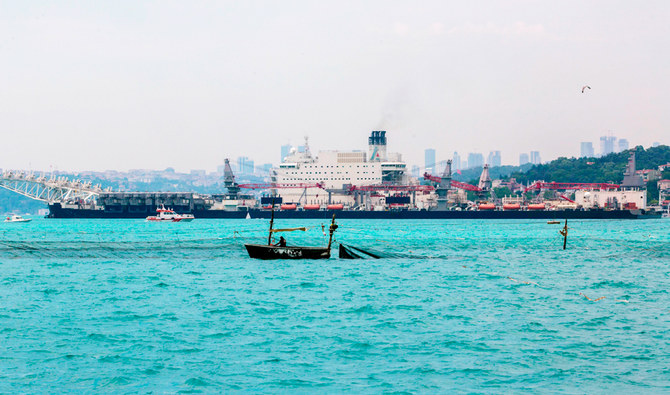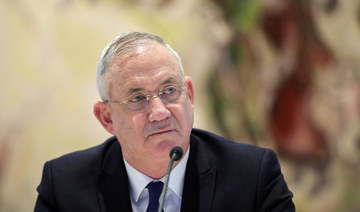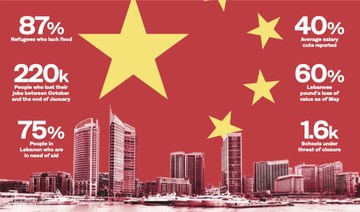CAIRO: Turkey will start exploring Libya’s coast for gas within three months, the country’s Energy and Natural Resources Minister Fatih Donmez said, with experts saying the move will create tension with Egypt.
A dispute has been ongoing for several years between Turkey and Greece, Cyprus and Egypt regarding the ownership of natural resources in the Eastern Mediterranean.
The Turkish Petroleum Company has submitted an application to Libya’s Government of National Accord (GNA) for permission to excavate in the Eastern Mediterranean.
The move could escalate the tension between Ankara and Cairo that was caused by President Recep Tayyip Erdogan’s support for the Muslim Brotherhood following the 2013 revolution in Egypt that overthrew a Brotherhood-affiliated president. It eventually led to public enmity between Erdogan and Egyptian President Abdel-Fattah El-Sisi.
Political expert Tariq Abboud said Turkey was suffering from a severe economic crisis and was relying on reconstruction projects and future investments in the country to fix the problem.
The Eastern Mediterranean is a coveted region because it contains a large amount of natural gas estimated at more than 100 trillion cubic meters and Ankara wanted a share of that, according to Abboud.
Ankara also wants to seize the value of compensation of suspended projects in Libya, estimated at hundreds of millions of dollars.
“This is in addition to Turkey benefiting from supplying Libya with weapons, despite UN Security Council resolution 1970 of March 2011 which calls on all member states of the world body to prevent the sale or supply of weapons and related items to Libya,” he told Arab News.
“In addition, they also introduced Resolution 2420, which allows member states to inspect ships heading to or coming from Libya in order to prevent the entry of weapons into the country. But the reality is a completely different matter, as Greece stopped a ship heading to Libya from Turkey carrying explosive materials.”
Energy expert Mohammed El-Wardany said Turkey had been angered by the East Mediterranean agreement EastMed which was reached between Greece, Cyprus and Israel. The deal aims to secure energy supplies in Europe through a 2,000 km pipeline.
El-Wardany believed that Turkey saw the accord as an obstacle to its own attempts to expand control over the Eastern Mediterranean.
“It can be said that the Turkish-Libyan alliance came in response to that agreement,” he told Arab News.
“Turkey’s announcement that it will start exploration at this time is understandable. Turkey now consumes enormous amounts of energy annually, does not have sufficient resources, and imports the equivalent of $50 billion on an annual basis. Despite the excavations carried out by Ankara, the region's marine areas have no gas or oil fields. This led it to send ships to explore for gas off the coast of Cyprus, which Nicosia considered a provocation and illegal.”
Political analyst Jamal Shakra said that a direct confrontation between the two countries was unlikely, but that Egypt would move with its allies in the region to prevent Turkey from stealing what it had “no right to in the region.”














